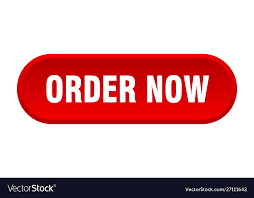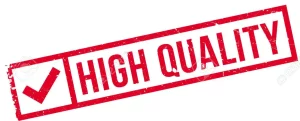- Premium Academic Help From Professionals
- +1 757 528 8682
- support@standardwriter.com
Memorandum Of Telephone Conversation Final Paper
Memorandum Of Telephone Conversation Final Paper
|
Order Number |
636738393092 |
|
Type of Project |
ESSAY |
|
Writer Level |
PHD VERIFIED |
|
Format |
APA |
|
Academic Sources |
10 |
|
Page Count |
3-12 PAGES |
Instructions/Descriptions
Memorandum Of Telephone Conversation Final Paper
Grading of your final paper: I will assess your papers on the basis of three broadly defined
factors.
First: quality of your writing. By this, I’m looking at how well you convey your
thoughts. Important considerations:
1) use of short, concise sentences, 2) no wordiness (use fewer words), 3)
no passive voice
Second: quality of your paper’s structure. I will look for:
1) A short, succinct intro (2-3 sentences for the short papers / 4-6 for
the , 2) thesis statement 3) a roadmap 4) properly formatted
paragraphs that have strong topic sentences which correspond to
your roadmap 5) conclusion that sums up your argument and places it
in a broader context
Third: quality of your analytical argument and your success in proving it
The paper will be based on primary sources covering some aspect of U.S. foreign policy during
the years 1945 to 1968. (I strongly recommend that you use tailor your paper around what is
available online at https://history.state.gov/historicaldocuments.) I will offer a voluntary
session on how to use the documents on this site.
Formatting and other specification:
- 7-10 pages in length for the final paper. This means at least 7 full pages at the very least.
This does not include the bibliography or the endnotes
- 12 point, Times New Roman Font
- Pages number at the bottom right-hand corner in the footer
- Using the header function, in the upper right or left hand header, include only your
name and title of assignment. For example: Rotramel – Final Paper. (Put your header
where the header to this document is.) Do not add any more information at all. (Do not
add my name, the course number, date, etc.)
- Do not add a title or a title page.
- Do not add titles or headings to anything: no paragraph titles/headings, no section
titles/headings.
Final Paper Guide
o The thinking behind this is that good writing – with clear topic sentences –
obviates the need for subheadings or titles, which tend to be used far too much,
and, unfortunately, also tend to replace solid topic sentences. (See the Writing
Guide about topic sentences)
- Normal 1” margins.
- Double spacing, no extended spacing between paragraphs.
- A word MS (.doc or .docx) or PDF (no google docs) submitted through Blackboard (note:
Blackboard submission means that your paper will be matched against an extensive
database to prevent plagiarism)
- Use quotations very sparingly or, preferable, never. If the actual wording of the author
is critical to your argument, you may quote that phrase or sentence, but only with it is
critical. Never use block quotes, and never add a quote that is longer than one sentence.
- Citations: use Endnotes. If you don’t know how to use endnotes, look this up on the
internet. They are like footnotes, but the appear at the end of the paper
- A bibliography is required if you choose to use secondar sources (more on this below).
Sources:
- Number of primary source documents required: between 10 and 25. 10 is the absolute
minimum. If you go over 25, do so with caution.
- For our purposes, in order for a primary source document to count as one of our
required 10-25 documents, they must be once classified (now declassified), internal
United States Government (USG) documents.
o Since you’ll be using US government documents, your arguments will have to be
based on what Washington was doing or what it knew. However, you can
analysis events on the ground through the huge number of reports created by
USG agencies (State, CIA, DOD, NSC, etc).
- Primary source documents are only cited in your endnotes, not in the bibliography.
- There are other types of primary source documents that you can still use if you want to.
However, they do not count toward your required 10-25 documents. Examples of these
other primary source documents include speeches, press releases, newspaper articles,
remarks, or Editorial Notes in FRUS. (Note: a speech is not an internal USG document
Final Paper Guide
because it is for public consumption, thus it does not count toward our 10-25
documents.)
- These other types of primary source documents (speeches, press releases) are also to be
cited in your endnotes, not in your bibliography.
- You are free to use up to three secondary/academic sources, but you are not required
to use any.
- Secondary Sources are the only thing that appears in the bibliography. List your sources
in the in the Chicago Style in the bibliography page at the end of your essay. If you don’t
use secondary sources, then you will not have a bibliography.
- A secondary source is a published book, article, memoir, or autobiography. These are
written or (at least published) long after the fact.
- If you cite a specific page or passage from a secondary source, that citation goes in an
endnote, and the book is still listed in the bibliography. (Remember to use quotes only
sparingly – it’s much, much preferable to paraphrase).
- If you do choose to use a secondary source, you would do so by taking these authors
arguments to support your own analysis. These sources should be relatively important
or experts on the topic that you choose. If you have any doubt about what qualifies as a
qualified source, please ask me.
o What defines an academic source is that they come from academic presses,
whether journal articles, edited volumes, or monographs. This means they are
peer-reviewed. For example, a book published by a university press is a very
good academic source. Journals like Modern Asian Studies, or Pacific Historical
Review, or Central European History are examples of academic journals. JSTOR is
an excellent database to find these sources.
DO I NEED A BIBLIOGRAPHY AND ENDNOTES?
You only need a bibliography if you use/reference secondary sources (books, articles, etc). If
you use secondary sources (which are not required for this assignment), not only should you list
them in the bibliography, but you will cite them in your endnotes as well if you point to a
specific page in that book or article. I’m not terribly concerned about the exact format of the
bibliography or the endnotes, though I prefer Chicago. I just need to know the basic
information about your sources and how I can find them. Include in the endnotes hyperlinks for
the documents you use.
Final Paper Guide
If you don’t use secondary sources, which is perfectly fine, then you don’t need a bibliography.
Your citations for your primary documents (the documents that you found in FRUS) will be in
the form of endnotes. If you are unfamiliar with endnotes, search the internet on how to do
endnotes.
WHAT WILL MY ENDNOTES LOOK LIKE?
Endnotes (not footnotes) will include date of document, type of document, sender and
receiver, if applicable, and source.
Here are some examples:
Memorandum from Scowcroft to Bush, March 1, 1989
(https://nsarchive.gwu.edu/dc.html?doc=3402676-Document-14-
Scowcroft-to-Bush-Getting-Ahead-of)
Bush – Kohl, memorandum of Telephone Conversation [or just write
“Telcon” for short], February 13, 1990
(https://bush41library.tamu.edu/files/select-documents/telcon2-13-
90.pdf)
Bush – Mulroney, memorandum of conversation [or just write “Memcon”
for short], February 10, 1989
(https://bush41library.tamu.edu/files/memcons-telcons/1989-02-10–
Mulroney%20[1].pdf)
National Security Review 10, U.S. Policy Toward the Persian Gulf,
February 22, 1989 (https://bush41library.tamu.edu/files/nsr/nsr10.pdf)
“Remarks at the Annual Conservative Political Action Conference Dinner,”
Public Papers, March 2, 1984
(https://www.reaganlibrary.gov/archives/speech/remarks-annualconservative-political-action-conference-dinner-0)
Memorandum from Helms to Nixon, January 6, 1969,
(https://history.state.gov/historicaldocuments/frus1969-76v02/d179)
Memorandum to Brzezinski, August 25, 1978
(https://www.dni.gov/files/documents/icotr/Argentina-Carter-Reganand-Bush-VP-Part-1.pdf)
Final Paper Guide
Memorandum for the Record [or just write “Memrec”], ARA-CIA Weekly
Meeting, August 3, 1976
(https://foia.state.gov/Search/Results.aspx?caseNumber=O-2016-16244)
Topics
- Topic should fall somewhere between 1945 and 1868. You can focus on a single event,
or on bilateral relations with one country (either over time, or at a given point in
history). You can also focus on medium or longer term issues. You can compare different
events in the same time period, or comparable events in different time periods. I
suggest that you focus on a single administration or single event.
- You should center your content around an analytical thesis. Use the documents to
support your argument.
o The key here is to look at why things happened the way they did. What caused
decisions to be made, or did events overtake decisions? Who or what made
policy? Why were certain policies different than other policies? Why did policies
fail? Why did actors perceive failures as success? Etc.
- Your argument will be history based, using primary source documents (as opposed to
analyzing the work of historians).
Thesis
- At the most basic level, a thesis could be something along the lines of the following
examples (note that these examples do not fall within our time period, they are only to
be used to get you to start thinking):
- In the beginning of his first term, Reagan treated an issue/country
differently than he later told people. Here you could find documents
describing the initial treatment of the issue/country and comparing this
to how he publicly admitted. Here you could use the Public Papers and
compare his statements to his private communications.
- Or you could argue about a “deciding factor.” For example, Reagan, who
initially supported Argentina, backed the UK during the Falklands crisis
because of a key deciding factor. Here you could argue that it was one of
his advisors that convinced him to follow a certain policy. You could then
argue that that key advisor battled other advisors to implement this
policy. Or, in this example, you could determine how this non-support for
Argentina affected US-Argentina relations down the road.
Final Paper Guide
- You could use the “point of no return” argument. Here you point to an
event or a date that that portends the inevitable. For example, instead of
seeing the fall of the Shah in Iran as Carter’s fault (a popular view), you
could show that it was really the Ford administration’s poor handling of
US-Iranian relations that was the structural cause of the Shah’s weakness
(and the CIA’s disregard of political Islam).
- You could argue that two things that appear unconnected are really
connected. For Example, the strike against the US Marine barracks in
Beirut and the invasion of Grenada (two days later).
- You could analyze how one policy objective completely overshadowed
another. For example, the Carter administration completely changed
course with Pakistan after the Soviets invaded Afghanistan. Before the
invasion, Carter imposed sanctions against Pakistan for building a nuclear
capability, but after the invasion administration offered Pakistan
everything. You could argue that this about face failed for three reasons.
- Perhaps you could argue interagency conflict was the real reason behind
an event, or how an event affected the interagency relationship (look up
Operation Eagle claw and Secretary of State Vance’s resignation).
- Or you could look at how individuals performed differently when then
held the same office.
o These are just some examples to get you thinking. Please do not hesitate talk to
me about your ideas!
Memorandum Of Telephone Conversation Final Paper
Memorandum Of Telephone Conversation Final Paper
Place the Order Here: https://standardwriter.com/orders/ordernow / https://standardwriter.com/ |
|||||||||||||||||||||||||









